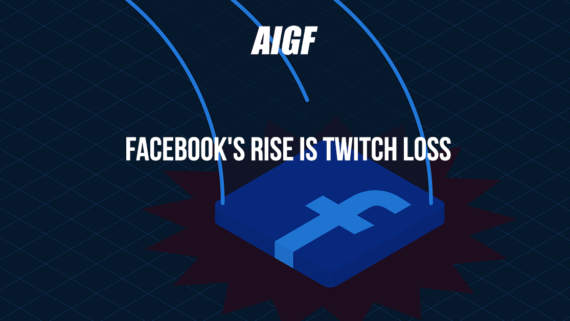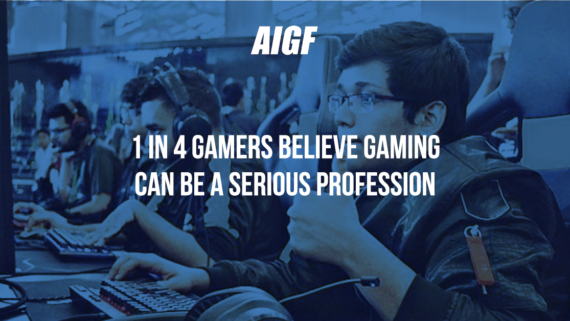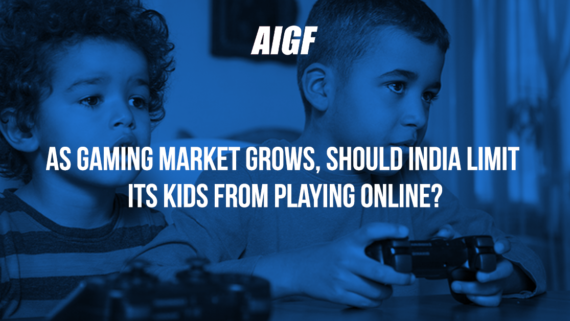“The gaming industry is blasting, dominating the movies and music sectors by a wide sum. With US$131 million invested in Indian online gaming platforms in 2020, the market is incredibly interesting to investors at present. This figure may be more noteworthy notwithstanding the current administrative and strategy structure uncertainty,” Roland Landers, CEO, All India Gaming Federation.
The Rise of Online Gaming in India
It was an uncommon time when Prime Minister Narendra Modi tended to the whole country, with everybody stuck before their TVs, as he upheld a cross-country lockdown from March 23, 2020.
Confusion is putting it mildly for what follows. Individuals lost jobs, homes, walked thousands of miles just to be with their friends and family, while thousands died every day.
Also, following eighteen months of living in dread, nervousness, and insecurity, individuals have steadily become numb to this pandemic. In any case, as indicated by authorities, online gaming has acquired momentum since the principal wave of COVID-19.
Individuals started to depend on the internet as a method for entertainment due to the lockdown estimates that constrained them to remain inside and isolated at home. During this lockdown, the gaming sector in India developed at a Compound Annual Growth Rate (CAGR) of 21%.
How the COVID pandemic sped up the development of the gaming sector in India
The gaming sector’s turnover has expanded generally by 50% since the pandemic-enforced lockdown, with the national average gaming time spent by players expanding to 4.1 hours post-COVID from 2.5 hours pre-COVID.
As indicated by figures delivered by different gaming organizations, the number of real-money games has expanded dramatically since the lockdown. In May 2020 alone there were nearly 150 million games downloaded. Furthermore, a contributing element to the increment in both the gaming sector’s revenue and the number of downloads of real-money games could be the critical expansion in the number of real-money players aged 35 or above.
As indicated by a study conducted during that time, mobile gaming applications showed phenomenal traffic and use during the underlying weeks of the cross-country lockdown, with gaming applications like PUBG, Rummy 13 Cards, Ludo King, and Bubble Shooter among the most well-known applications at that point.
“The gaming industry is blasting, dominating the movies and music sectors by a wide sum. With US$131 million invested in Indian online gaming platforms in 2020, the market is incredibly interesting to investors at present. This figure may be more noteworthy notwithstanding the current administrative and strategy structure uncertainty,” Roland Landers, CEO, All India Gaming Federation.
To be sure, as indicated by numerous industry experts, skill-based games have become progressively famous as of late. India houses over 300 million users, and that number is expanding every day. Also, in India, smartphones are normally used to play online skill games as the nation represents 13% of the worldwide gaming market.
According to Deloitte India’s analysis, the online gaming sector is projected to develop at a 40 percent CAGR to US$2.8 billion by 2022, up from US$1.1 billion in 2019. This quick ascent is expected to help the sector’s portion of the whole media and entertainment business by 45%.
The rise of traditional skill-based games
The COVID-19 pandemic shot up the demand for online gaming as numerous young people and working experts hoped to evaluate different indoor entertainment alternatives to fight boredom amid work and study from home. Aside from famous skill-based online games like Online Rummy and Teen Patti, fantasy sports and chess have shown up as a portion of the favored types of entertainment.
While the lockdown expanded usage and commitment, its drawn-out suggestions are yet to be seen. The overwhelming monetary effect will undoubtedly influence all consumption, including transaction-based skill games. Yet, the lull is only a blip that will vanish.
Among the couple of traditional games that snatched the spotlight, Ludo King, specifically, got a facelift, with individuals all over the nation playing it with their friends, families, and partners. Ludo King detonated in popularity as it created five-overlap expanded traffic during the lockdown. With more than 330 million downloads and 50 million day-by-day dynamic users, the fast expansion in rush hour gridlock took the makers, Gametion Technologies, off guard.
Vikash Jaiswal, the founder of the game, said in an interview, “Similar to every other person, we were stressed over what this lockdown would mean for us, both Ludo King and the organization. These are exceptional occasions, something nobody has seen previously, and subsequently, it was very hard to expect what it would mean for the industry or our game. Notwithstanding, we were wonderfully amazed when we began to see expanded traffic on Ludo King.”
Ludo King before long become the #1 Free Game on the Google Play Store, beating any semblance of Temple Run and Candy Crush Saga. The interest has expanded complex during the lockdown and Jaiswal accepts things would stay that way even after lockdowns are completely lifted and individuals get more occupied.
“The significant shift that the gaming industry will see is an increment in the number of players,” said Jaiswal.
“The numbers will be down when contrasted with the lockdown however are likely going to be more than before the lockdown started. The fundamental justification behind this is individuals who consistently guarantee that video games are not intended for them or that they are terrible, are presently sitting at home and playing around to kill time. As each gamer knows, games are extraordinary and fairly habit-forming.
“This load of new crowds won’t quit playing when the lockdown is finished. Of course, some will, yet since the others have now got a taste, they will continue to play, which is incredible information for online games and Ludo King also.” Jaiswal added.
The master plan
The worldwide market size for online gaming is expected to develop from US$37.65 billion in 2019 to US$122.05 billion in 2025. In India, the online gaming industry was worth US$543 million in 2016 and has expanded to US$1.027 billion in 2020 at a CAGR of 18.6 percent. In addition, the COVID-19 pandemic appears to have sped up this development rate as Deloitte India expects in its report that the online gaming market is expected to develop at a CAGR of 40% to US$2.8 billion in 2022.
While India at present holds the fourth biggest online gaming market all around the world, the industry requires a strong administrative and legal climate to help the business scale rapidly and accomplish its actual potential, as clarified flawlessly in the AIGFs “Online Gaming in India — The GST Conundrum.”
The number of online gamers in India is developing step by step; it is estimated to develop from 360 million to the greater part a billion before the end of 2022. Also, there are more than 400 gaming new companies at present that are speeding up the development of online gaming in India.
Be that as it may, as most disciplines, to understand the maximum capacity of the online gaming industry, a duty of standard Goods and Services Tax (GST) and Value Added Tax (VAT) rates is suggested. This is because, in India, the order of whether a game involves a “game of skill” or a “game of chance” has more extensive lawful implications for the business all in all.
A game of chance draws in a higher GST pace of duty than a game of skill. Online games work either on a “rake fee” model wherein the gaming platform charges a rake fee for working with games or “freemium” models wherein the ongoing game is free yet extra elements might expect users to buy explicit things at a cost. Subsequently, a sane inconvenience of GST is essential for the supportability of this industry.
“The valuation questions under GST law have been a dampener to the industry. Considering the market size and future development projections, the online gaming industry is relied upon to be a critical supporter of the government’s vision and give future monetary roads considering the omnipresent digital patterns affecting our way of life,” said Roland Landers, CEO, All India Gaming Federation.
“It is important to note that backward tax collection from these arising sectors may just make the business unreasonable in India. We suggest that the Tax authorities ought adjust their strategies to globally acknowledged standards of taxing the online gaming sector and give conviction to the industry. We trust that this report would give significant bits of knowledge and assist accord with centering this dawn industry,” he added.
Overall, the online gaming sector has made gigantic increases since the beginning of 2020 with the COVID-19 pandemic assuming the part of a catalyst in speeding up this interaction. A sound authoritative arrangement and administrative body can guarantee the manageability of this industry.
Besides, as indicated by KPMG and Cisco estimates, India had more than 500 million smartphone users in 2019 and that figure is relied upon to expand up to 842 million by 2025. Accordingly, the quest for customized entertainment alongside segment tailwinds, smartphone penetration, and low information costs will keep on driving the online gaming industry onwards and upwards.
Credits: Sports Khabri











Comments
Comments are closed.